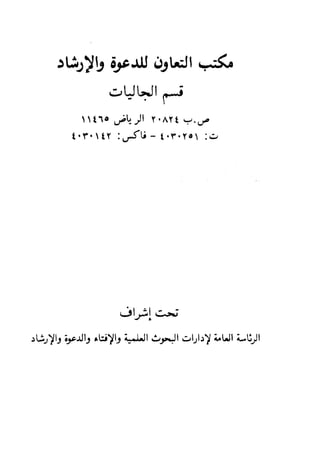This document provides instructions on how to perform wudhu (ablution) before prayer (salaat) in Islam. It begins with an introduction on the importance of salaat and its virtues. It then discusses the conditions and essential/voluntary acts required for valid wudhu. The document demonstrates how the Prophet Muhammad (PBUH) would perform wudhu step-by-step, from making intention to washing different body parts. It concludes with important points about properly performing wudhu and a recommended supplication to recite after completion.
![tilll
KITAB
AL SALAAT
rf r r(!ir of PRAYFR)
(]ON1PILED
BY:
NA] IJIIiI1A ADA]VJ](https://image.slidesharecdn.com/alsalaat-150520014922-lva1-app6892/85/Al-salaat-1-320.jpg)
















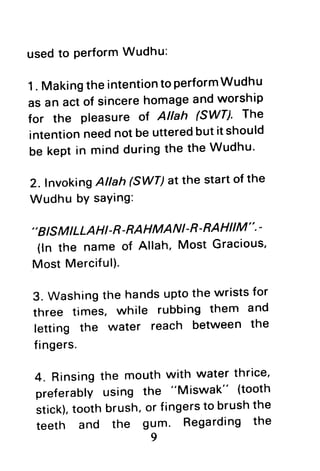

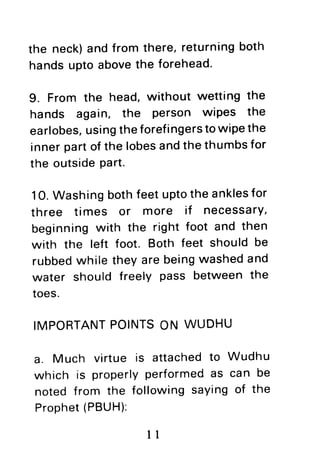

















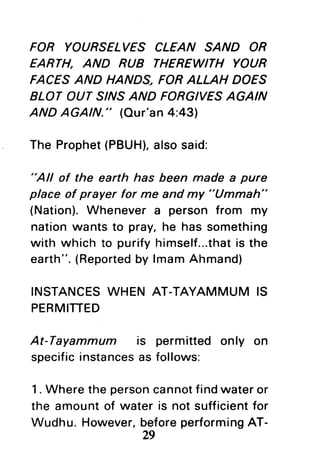








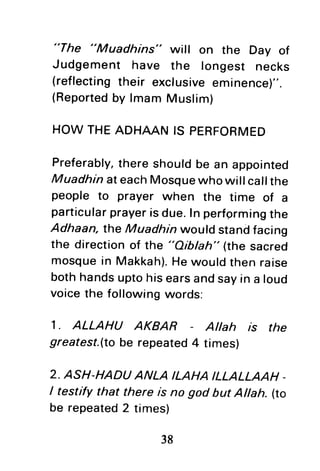









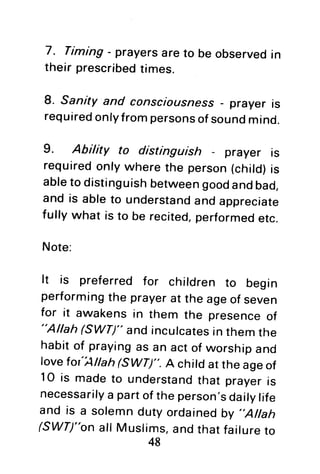



















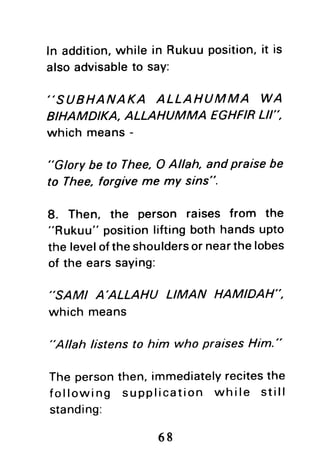

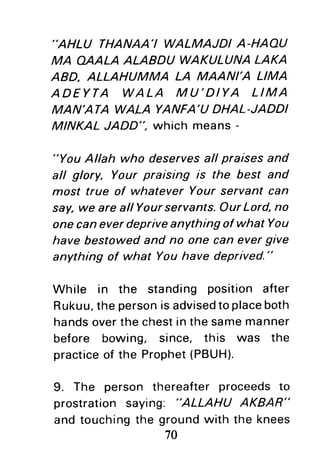





















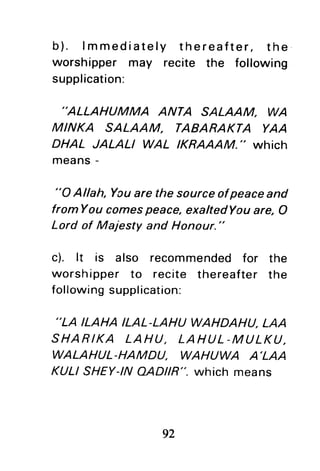








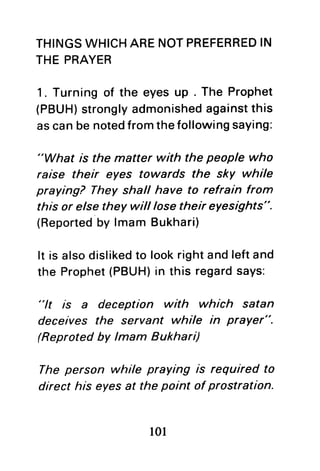

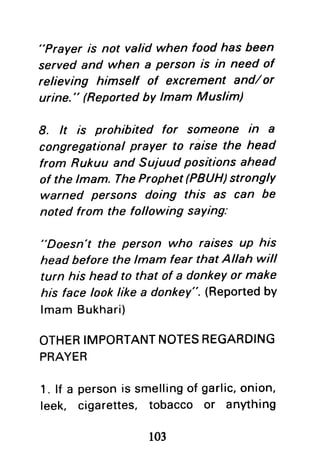




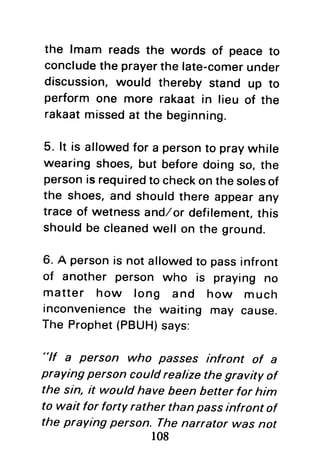
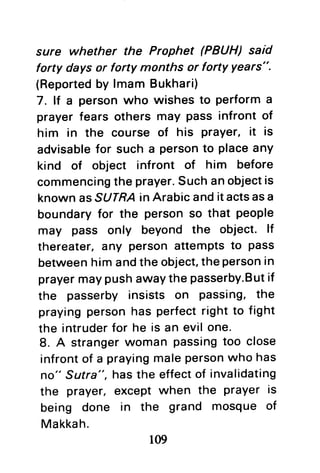







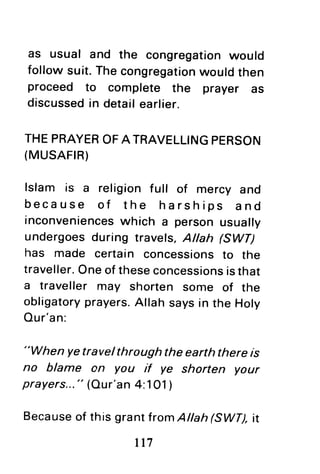
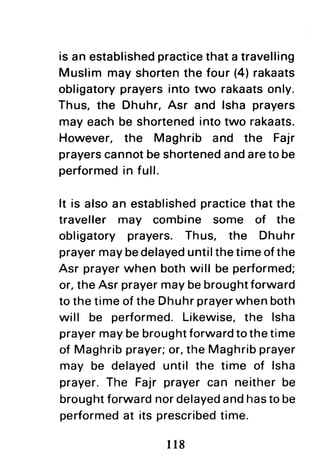


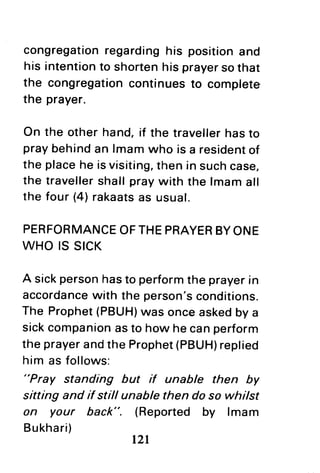



























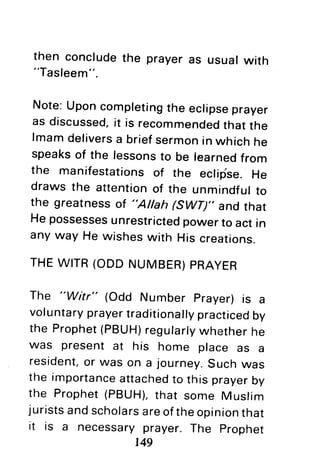














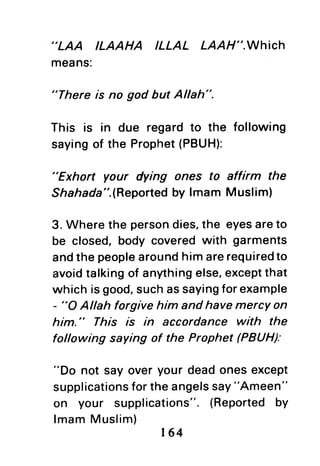














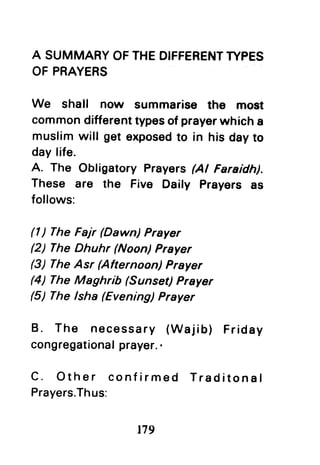









![rultltl irlJt{ultl(,| lir
:.-i1l{1,;r,-
' g.Jl J-.ir '-*!lrtCi - t
. i->:Al Dtall oE3i - Y
. l+* u tpto+l-ut+tl-rlr iy...,l Jo:-) - Y
' D[.4.J1iio - L
. r{*],l r3a.,;t(.i
- o
. i)[.all o>tlo, - f
. i..^+l D[.oJirt+l fJ., - V
. JU.e'll;ri U.. - ,t
.jr-Klb ,$ r.'11-ei/-Jo^JlC>[rrL-&JlDt, - t
tJt:
.;jl+l Dt - .](https://image.slidesharecdn.com/alsalaat-150520014922-lva1-app6892/85/Al-salaat-198-320.jpg)
